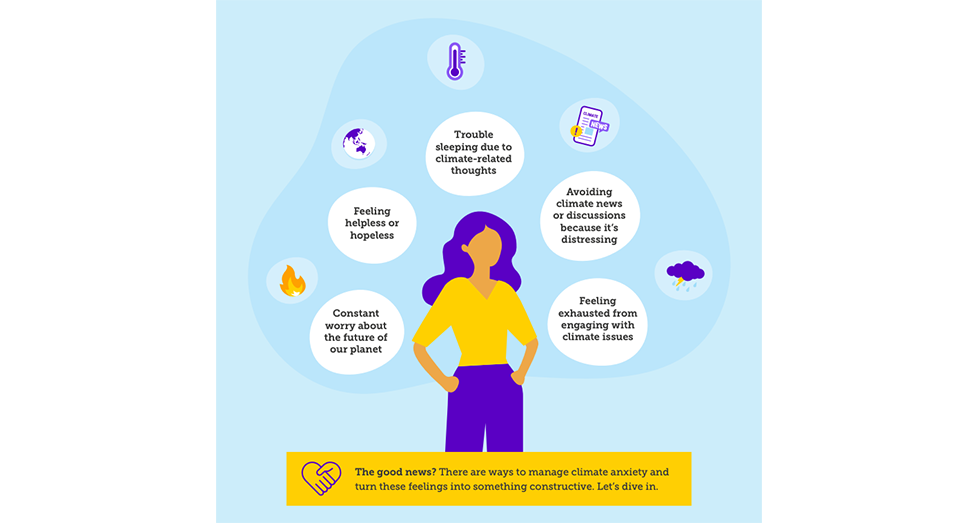IT can be frightening when one realises that we are part of the “save the Earth generation”. For as long as I can recall, that title has often been emphasised. It is often said that the future of humanity — and by extension, our planet — lies in the hands of young people. That reality can feel like a huge responsibility for many, especially those actively committed to environmental and climate justice.
We often measure our everyday actions; we try to be politically correct and stay conscious of global climate conversations, and we seek to critique how our daily decisions will impact “tomorrow”. These realities and this sense of responsibility can lead to anxiety and stress about our roles in climate change and justice. It can be quite overwhelming.


The concept of “climate anxiety” is now being coined by psychologists worldwide. It is being recognised as the feelings of anxiety and fear that we experience about the growing concerns surrounding the state of our planet and environment.
Guyana, and by extension the Caribbean, has experienced many environmental changes in recent decades due to climate change. I have previously written a significant number of articles on environmental impacts, including floods, receding shorelines, and deforestation. When I was younger, the concept of “climate change” was amateurishly dismissed as a “thing of the future”—a reality to be spoken of only in the future tense, a reality that existed only for humans of the decades to come.
Unfortunately, in recent times, it has been scientifically proven that climate change has been increasingly affecting our ecosystems, biodiversity, human social systems, and overall daily lives — from the floods in 2020 that devastated livestock farmers, resulting in millions of dollars in losses of animals and farmland, to the increasing heatwaves that often lead to wildfires and loss of trees in forested regions. It is devastating — and, unfortunately, we are presently living through these devastations.
As someone actively reading and learning about climate justice and change, I often hear the importance of owning the realities we now face. Humans are not always keen to “own” the devastating realities they have created. However, the more we understand climate justice and environmental science, the more we recognise how our everyday actions affect the environment around us.
One professor of mine who teaches these concepts once joked about not having the role of teaching a “doomsday class”, noting that sometimes it is hard to be optimistic about environmental justice. Unfortunately, there is truth in the humour, because I often find it difficult to remain optimistic after those class sessions.
I can recall the first time I experienced “climate anxiety”. I was grappling with thoughts about the quality of the Earth’s living spaces for my children. Will they experience better or worse air quality? Will they be able to enjoy the breathtaking Atlantic Seawall in similar ways? What crisis management systems are in place for climate disasters, and how effective are they?
These were all questions I had, and I kept wondering if I was being too dramatic or too critical. I eventually concluded that my questions and fears were all valid. I wanted to share these personal reflections to show a possible solution — how you can fuel these valid fears into an actionable response.
Similarly to my advocacy through writing, you too can channel your concerns and anxiety into awareness and action for change. The Caribbean region — and, by extension, Guyana — is often considered “climate resilient,” but I personally believe we sometimes hide our fears behind the concept of resiliency.
However, I want us to push beyond this narrative of resiliency and accept that it is okay to be fearful of the unknown state of our world. As such, the next time we experience flooding due to rainfall or a wildfire, I want us to remember that our fears are valid and important to consider — but so is our call to action.
In the words of Caribbean climate activist Adia S. Daniel from St Vincent and the Grenadines:
“This is not a scene from a horror movie, but a grim reality that we in the Caribbean face due to the devastating impact of climate change.”
If by chance you feel overwhelmed by the news or realities of our climate, I would advise taking a break from the media, talking with climate buddies or other activists, taking care of yourself first before thinking of other people and things, and most importantly, fuelling those fears into meaningful solutions for our planet.


.jpg)











